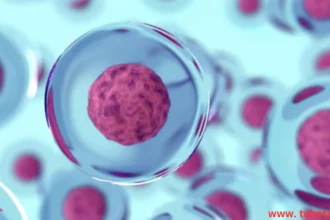Newborn dogs are small animals that were born a short time ago and are called puppies. These dogs are more susceptible to diseases than older dogs, so they need intensive care and special care under the supervision of a veterinarian. They must be provided with appropriate treatment, food and vaccination, and it must be ensured that they have fully recovered because the immunity of newborn dogs is weak and their rate of health resistance is low. Therefore, we can identify diseases of newborn dogs to prevent them and take health measures to avoid contracting diseases.
Follow this article from teketrek.
The importance of caring for newborn puppies
There are some simple steps that can be followed to prevent diseases of newborn dogs and protect them from them. The protection steps are as follows:
- Newborn dogs feed mainly on their mother’s milk, and after a full month has passed, food can be provided to the dog, and the food is meat soup with bread, some vegetables and pieces of chopped meat, and it is provided with 4 meals throughout the day.
- A large amount of water should be provided to newborn dogs, and to the mother as well, so that they do not become dehydrated and lack fluids.
- Newborn dogs must be vaccinated under the supervision of the treating veterinarian.
- Provide deworming doses to newborn dogs before they reach the age of three months to maintain their health.

The most important diseases of newborn dogs
Some diseases appear in newborn dogs after a period of their birth, and these diseases may be simple or serious. The most important diseases of newborn dogs are as follows:
- Diarrhea: Diarrhea may appear among newborn dogs several days after their birth, and this problem is due to their infection with a viral infection, a bacterial infection, or a change in their diet, or swallowing food that is heavy on their stomach, and thus dogs suffer from diarrhea, vomiting and stomach disorders, and in this case, a doctor must be visited immediately to diagnose the condition correctly and receive appropriate treatment.
- Infections: Newborn puppies suffer from severe infections due to contact with other animals’ feces, or due to living in a polluted place full of fungi and microbes. The most important symptoms of infections are vomiting, diarrhea, weight loss, dehydration, lethargy, laziness, and anemia. In this case, you should visit a doctor to do a blood test, urine test, and stool test for dogs to accurately diagnose their condition.
- Immune deficiency: Newborn dogs are exposed to immunodeficiency due to their infection with a serious bacterial disease called (leptospirosis), which affects the liver and kidneys. This disease is transmitted to newborn puppies through contaminated water. Its most important symptoms are vomiting, diarrhea, lethargy, and fever. This disease is prevented by taking medications to enhance immunity under the supervision of a veterinarian.
The most dangerous infectious diseases of dogs to humans: prevention and protection
How to prevent and treat diseases in newborn dogs
There are some steps that are preferable to follow to prevent diseases in newborn dogs, as these steps have a great positive benefit in preserving them and protecting them from diseases. These steps are as follows:
- Newborn dogs must drink their mother’s milk in the first period of their birth, as this milk contains antibodies that resist infection and bacterial diseases.
- After 8 weeks, newborn dogs are fed light meals prepared at home during the day, and any foods containing (onions – garlic – milk – cheeses) should be avoided.
- Provide vaccinations and vaccines designated for newborn puppies on their specified dates according to the veterinarian’s instructions.
- Pay attention to the place where the mother lives after the birth of newborn dogs, as the place must be clean and free of insects.
- Examine newborn dogs from the feet and examine the skin and eyes to ensure that they are free from any infectious diseases.
The role of the mother in protecting the puppies
There is no doubt that the mother has the most important role in the lives of her young, as she feeds them and protects them from dangers, as the maternal instinct in dogs helps protect them from diseases of newborn dogs, and the role of the mother is as follows:
Newborn dogs should be left with the mother for two months to ensure that they are properly breastfed.
The mother is the one who teaches the young puppies the correct habits to eat and drink from the bowls designated for them.
The mother is able to teach her young how to relieve themselves in the sand.
The mother should be fed with all the healthy foods suitable for her, which contain proteins, vitamins, calcium and zinc to breastfeed her young efficiently.
Danger signs that require a visit to the veterinarian
Diseases in newborn dogs are divided into two types (common type and dangerous type). In the case of common diseases, they are treated immediately at home, but in the case of serious diseases, a veterinarian should be visited to protect dogs from any risks. The danger signs that require a visit to the veterinarian are as follows:
- Pale gums.
- Anemia.
- Dogs’ vision is weak and emaciated.
- Refraining from eating and drinking.
- Sudden change in the dog’s behavior (aggression and ferocity).
- Lethargy and lack of activity.
- Vomiting and diarrhea.
- Weight loss.

Tips for caring for newborn puppies
There are some tips that can be followed to avoid diseases in newborn dogs, as these diseases spread very quickly after the birth of young dogs, affecting them and may cause their death, so these tips can be implemented to protect young dogs, and the tips are as follows:
- Receiving newborn dogs on an empty carton to protect them from cold and moisture.
- Leaving the newborn dog with its mother to clean it from the sticky fluid on its body, as mother dogs are able to take care of newborn dogs on the first day accurately.
- Providing food to the mother so that she can breastfeed her young, and if the mother’s milk is not sufficient, newborn dogs can be breastfed with the small bottle designated for them with the use of milk for children.
- Providing all vaccinations for newborn dogs On time.
- Training newborn dogs after a month of growth to relieve themselves in the sand immediately after eating.
Conclusion
All pet owners, especially dogs, should know all the information related to raising dogs, as diseases of newborn dogs spread quickly among dogs, and will inevitably negatively affect their health, so complete health care must be provided to dogs, and attention must be paid to the cleanliness of the fur and the cleanliness of the place where they live, and the type of dog breed that is raised at home must be determined, because each breed needs special care and a specific method of caring for it, so dogs must be examined periodically under the supervision of a specialized veterinarian to provide them with the best health care.





